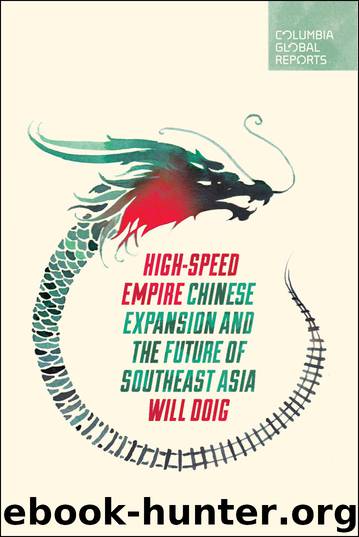High by Will Doig

Author:Will Doig [Will Doig]
Language: eng
Format: epub
Did China intend for the Sri Lankan loan deal to self-destruct as a way of acquiring control of the port? To better understand Beijing’s motives, I met with Parag Khanna in Singapore. Khanna’s bio describes him as a “global strategist.” His resumé is a gravitas salad of special advisory credits, think-tank fellowships, bestselling books, board affiliations, and advanced degrees. But in person he’s loose, even goofy. He suggested we meet at Atlas, an extravagant faux art deco bar in downtown Singapore, to which he arrived in shorts and flipflops in cheerful defiance of the dress code. Wolfing grilled octopus and throwing his leg over the arm of his leather chair, he notes that while the previous Sri Lankan government had been friendly with China, the current one had been stubbornly resistant to Beijing’s overtures. But after the port deal went south, “Sri Lanka’s debt exposure to China was so high, they had no choice but to go back to the pro-China stance of the government before them,” says Khanna. “That’s crafty planning.”
“I have an equation I use to measure how fucked your country is in its relationship with China,” he says. It’s a back-of-the-napkin appraisal designed to make a point. “Your numerator is your debt to China, and your denominator is your total outstanding debt. The result is the share of your country’s debt owed to China.” The higher the number, the more you’re “fucked.”
Loans from China comprise about $8 billion of Sri Lanka’s total $65 billion national debt. “A number of countries fall into my little mathematical formula,” says Khanna. “And that’s by design. China leverages this debt to get other things it wants. Oh, you just defaulted on your payment? Okay, you have to sell us your next oil and gas exploration concession at a fire sale price. Or your next tranche of sovereign debt issuance will be in renminbi instead of dollars.”
Proponents of this theory have labeled it “debt-trap diplomacy,” with one scholar alleging that “China is taking steps to ensure that countries will not be able to escape their debts.” Sri Lanka isn’t the first country to be backed against a wall by Chinese generosity. Just a tick northwest, the $55 billion China-Pakistan Economic Corridor (CPEC), a web of roads, rail, and energy infrastructure linking China to the Arabian Sea, threatens to beckon Pakistan onto similarly thin fiscal ice. One of Pakistan’s former finance ministers estimates that CPEC loans could raise the country’s debt level by $14 billion, bringing it to a total of $90 billion. A BMI Research report warned that this could put Pakistan in a position “similar to the situation that Sri Lanka currently finds itself in.” Already, the deal has secured China a forty-year lease on Gwadar Port, a supremely strategic location for any country hoping to secure its interests in the Persian Gulf.
To Khanna, if China is indeed burdening countries with debt they can’t afford, that’s simply savvy mercantilism. “It’s not China’s fault its neighbors are poor and backward and badly governed and need infrastructure,” he says.
Download
This site does not store any files on its server. We only index and link to content provided by other sites. Please contact the content providers to delete copyright contents if any and email us, we'll remove relevant links or contents immediately.
| Arms Control | Diplomacy |
| Security | Trades & Tariffs |
| Treaties | African |
| Asian | Australian & Oceanian |
| Canadian | Caribbean & Latin American |
| European | Middle Eastern |
| Russian & Former Soviet Union |
The Secret History by Donna Tartt(19088)
The Social Justice Warrior Handbook by Lisa De Pasquale(12190)
Thirteen Reasons Why by Jay Asher(8910)
This Is How You Lose Her by Junot Diaz(6887)
Weapons of Math Destruction by Cathy O'Neil(6280)
Zero to One by Peter Thiel(5802)
Beartown by Fredrik Backman(5754)
The Myth of the Strong Leader by Archie Brown(5507)
The Fire Next Time by James Baldwin(5446)
How Democracies Die by Steven Levitsky & Daniel Ziblatt(5219)
Promise Me, Dad by Joe Biden(5153)
Stone's Rules by Roger Stone(5088)
A Higher Loyalty: Truth, Lies, and Leadership by James Comey(4964)
100 Deadly Skills by Clint Emerson(4925)
Rise and Kill First by Ronen Bergman(4789)
Secrecy World by Jake Bernstein(4753)
The David Icke Guide to the Global Conspiracy (and how to end it) by David Icke(4720)
The Farm by Tom Rob Smith(4513)
The Doomsday Machine by Daniel Ellsberg(4490)
